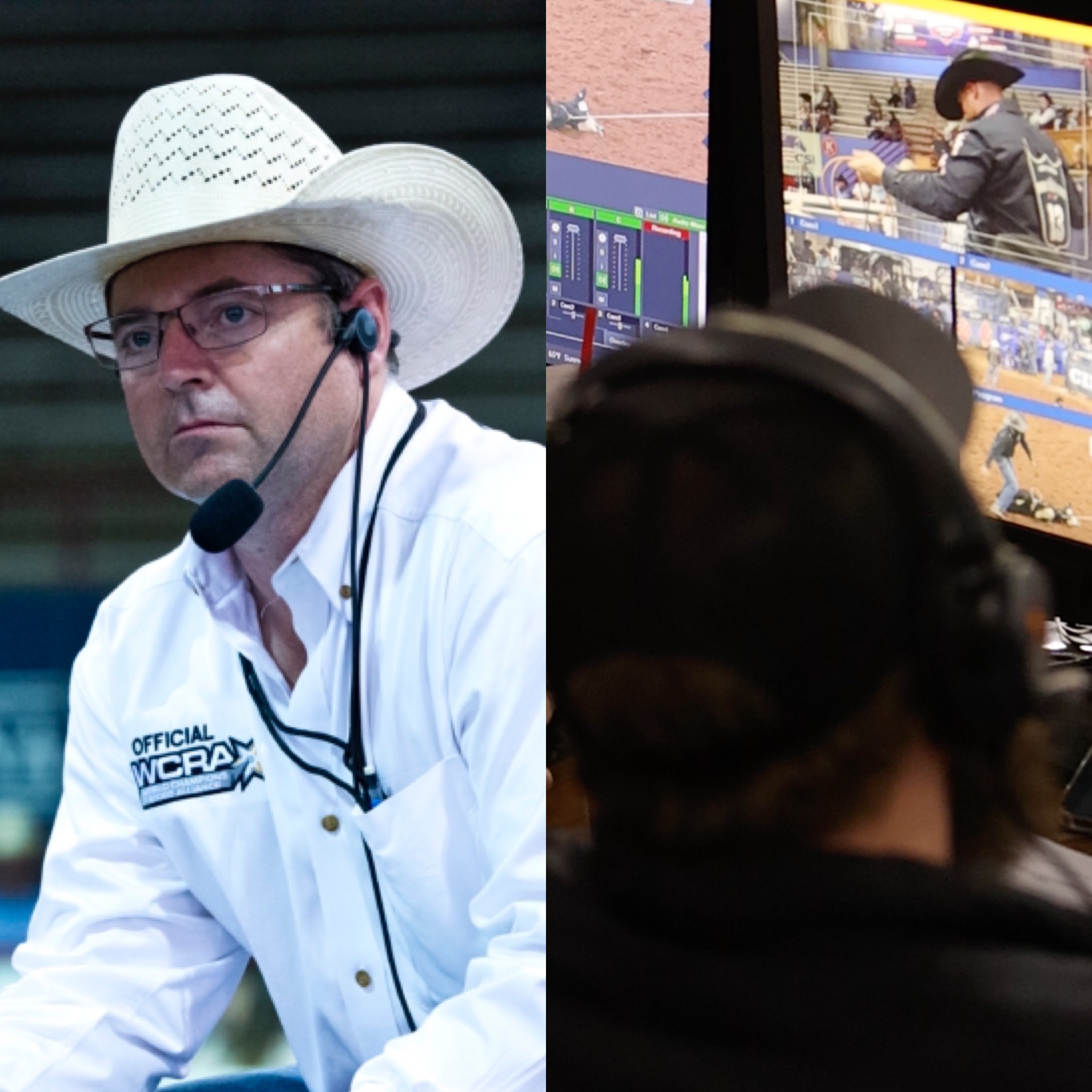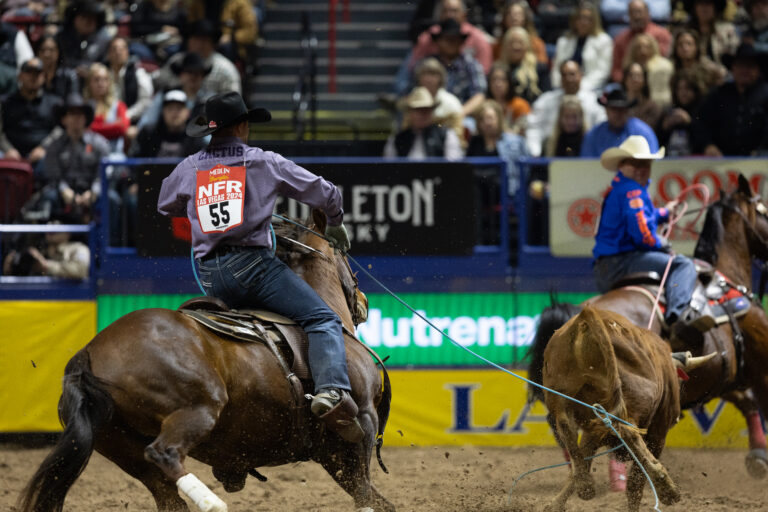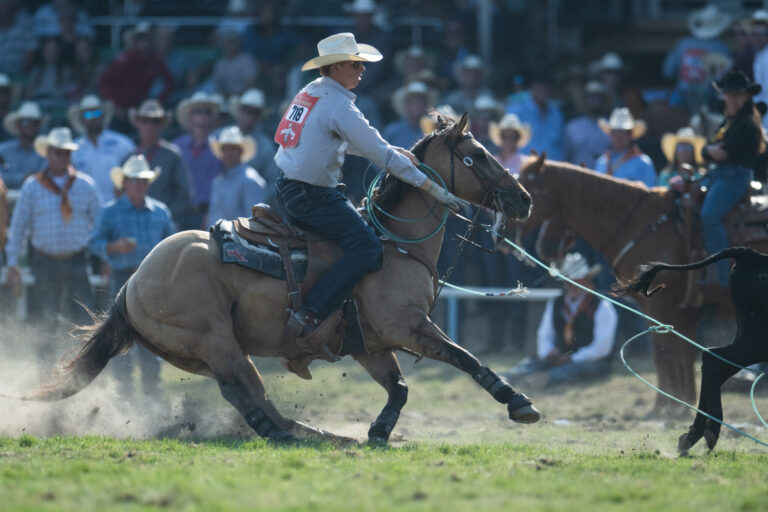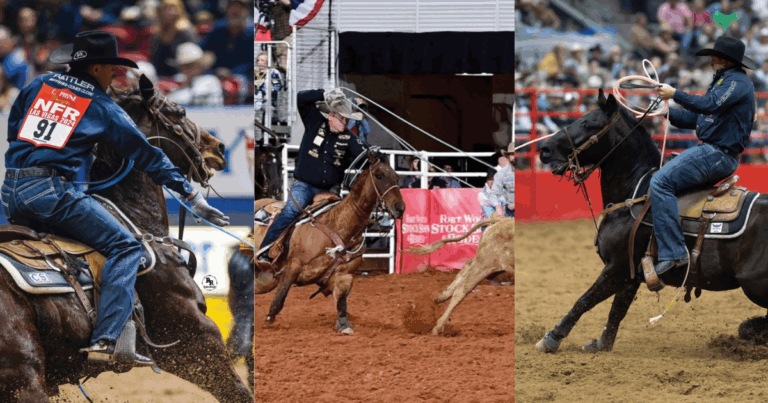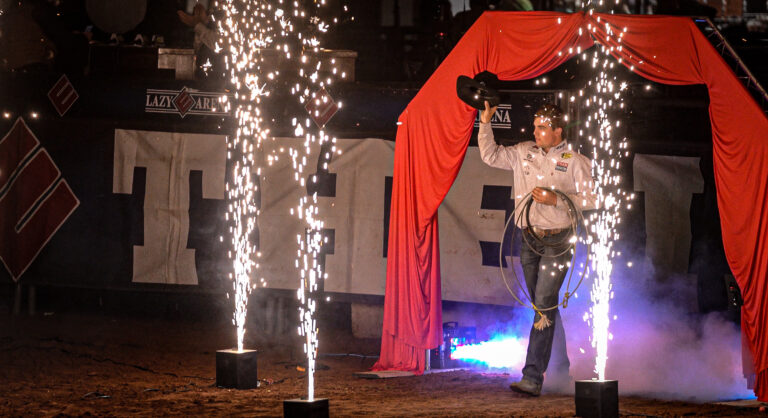Instant replay in PRCA rodeo has been a hot-button issue again in 2023 with Beau Cooper’s non-broken broken barrier call that cost the Canadian tie-down roper $50,000 at RodeoHouston March 19, and now a call made in the fifth round of the 2023 NFR.
Tuesday, Dec. 12, Coleman Proctor and Logan Medlin blasted their fifth-round steer in the Thomas & Mack in 3.1 seconds. The crowd erupted, as did Proctor, believing they just witnessed them break the NFR arena record inside the Thomas & Mack of 3.3 seconds. But, in a matter of seconds, Proctor and Medlin were flagged for a crossfire and given the 30-second penalty.
Social media is ablaze with calls for the addition of instant replay at major rodeos, with stories on the WCRA’s ubiquitous use of the technology and the IPRA’s addition of it at the International Finals Rodeo in January 2024.
So, is the PRCA considering implementing instant replay?
Sort of. Here’s what PRCA Director of Rodeo Administration Steve Knowles had to say on the subject:
“Currently, the PRCA Rule Book does not allow instant replay as it states the judge’s decision is final.
“Discussions are on the horizon to pursue what it will take to implement instant replay ability. Step one is that a rule change must be proposed. Although this step is underway, proper protocols must be in place for this rule to go into effect, which can be a timely process. It is not as simple as just implementing the change without regard to how cost will affect more than 600 rodeos sanctioned by the PRCA every year.
“Some PRCA rodeos have the capability of providing NFL-level replay options, while many rodeos lack the necessary budgets and accessibility to quality equipment that would provide a comparable level of replay features for every rodeo. Not to mention there are no two rodeo arenas that are identical when it comes to size and set up which makes it challenging.
“The PRCA is committed to maintaining the highest standards in rodeo and will continue to make advancements wherever possible to provide the best competition environment for its contestants.”
Meanwhile, the PRCA’s event directors are hard at work pursuing their own plan to mandate a rule-change that will require instant replay at rodeos with over $50,000 in added money per event.
Rule Proposal
We (Directors) would like to have a replay judge implemented at all PRCA rodeos with a purse of $50,000.00 added or larger (In every event). A judge would be allowed to replay any questionable calls or a contestant may ask to have a Run/Ride replayed. If you win the replay challenge it will cost nothing. If the call stands and is not overturned the contestant will be billed $500 to their PRCA account. The Replay Judges ruling will be final and irrefutable.
The contestant having the ride/run is allowed to ask for the Challenge/replay. However, any contestant in said event up that performance or set (if More than one Performance) is also allowed to Challenge a call. They are also subject to $500 fine if the initial call is not overturned.
Infractions that would be replay-able
- Mark out Rule (Rough Stock)
- Called for a slap (Rough Stock)
- (Close Call) for making the whistle (Rough Stock)
- Intentionally Catching knots in the Chute (Bull Riding)
- Barrier Malfunction (Timed Event)
- Clean Catches (Team Roping)
- Crossfire (Team Roping)
- Jerk Down (Calf Roping)
- Knock Down (Seer Wrestling)
- Is contestant touching steer when flat (Steer Wrestling)
This rule is up for debate now, awaiting submission to the PRCA’s board. But PRCA Team Roping Director Matt Sherwood is opposed to it as is with charging contestants the $500 fee.
“I won’t support it if we leave the $500 fee on there,” Sherwood said. “I don’t think a fair call should be left up to someone who has $500 to blow on a whim. I’d prefer each contestant receive a limited number of challenges per year. There are a lot of guys who $500 is a lot of money to. I don’t want them to be afraid to challenge the call, or someone challenge a call on another contestant just because he isn’t afraid to gamble $500 to put more money in his pocket. I don’t think we as contestants should have to pay to be treated fairly.”
Once submitted by the PRCA rulebook’s second-Friday-in-April at 5 p.m. deadline, the rule will be published in the PRCA’s Business Journal no less than once per month, and aren’t acted upon for at least a year following submission and publication. Ultimately, the PRCA’s Board of Directors reviews the Competition Committee’s recommendations on the rule change and they may override any of them by the affirmative vote of six directors or may amend or modify any of them by the affirmative vote of seven directors. (There are A LOT of sections in the rulebook with nuances related to rule changes, and it’s worth reading up on it here, starting on page 105.)
What is the PRCA administration doing to move toward instant replay?
The PRCA’s Director of Communications and Media Becky Hillier said the association hasn’t gotten far enough in the process to talk specific mechanics of having a video replay option at ProRodeos.
“We continue gathering information on the matter to give it the thorough and thoughtful attention it deserves,” Hillier wrote when asked if they’ve assessed estimated costs associated with adding instant replay to rodeo. “It is an issue that is complex on many levels and one that we will continue evaluating in the weeks and months ahead. As such, we have no further comment at this time.”
What will adding instant replay cost?
While the PRCA doesn’t yet have numbers ready to publish on the cost associated with adding instant replay to rodeos, WCRA’s Bobby Mote estimates that adding Instant Replay to the IFR will cost an extra $2,500 to $3,500 in cost for the three-round event.
“We typically have six cameras at each event, which serve the purpose of television and instant replay,” Mote explained of how the WCRA operates. “We have had a monitor by the boxes before and just utilize the four officials, and we have had a dedicated official who was seated in front of house with a dedicated monitor and comes to the trailer.
“Our goal as it was when we began is to make rodeo better for the athletes, so I hope that the PRCA and others would adopt what works,” Mote added. “We didn’t invent it, but have, through trial and error, refined it. I had it cost me a world championship, and I know there have been plenty of others…What’s the point of having an event at all if the outcome isn’t right?”
Meanwhile, over in the horse show world of the National Reining Horse Association, the National Cutting Horse Association, the AQHA and the National Reined Cow Horse Association, instant replay has long been in place at major events. Equine Promotion’s Jeremy Olsen is a contractor brought in by all of these major associations to operate instant replay alongside the event’s livestreams.

Not all instant replays are created equal, Olsen said, and in order to have a fair instant replay, the camera angles and shots need to be consistent for every run or ride.
“In the horse show world, all of our camera angles are based on what the judges need,” Olsen said. “Every time we add more cameras, we add those for the judges. We have two fixed cameras in the arena that never move so that every run is videoed the same way.”
This means—in rodeos shot for a TV audience like the National Finals—the PRCA would need a dedicated TV crew shooting just for the judges.
“If you tried to bring in a camera crew just for the television, that won’t work for a fair replay system,” Olsen explained. “Even the obvious calls from where the judge is sitting, from a different camera, may not look like a crossfire. The only way to do it and call it fair is for the judge’s replay shots to all be from a video team whose primary job it is to provide consistent angles throughout the whole event. Could you use those shots for TV? Yes absolutely. But those aren’t the shots you’d want for the entire rodeo.”
Olsen—a team roper himself—thinks the PRCA would at least need a fixed, unmanned barrier camera, as well as a dedicated camera man shooting the entirety of the run from a fixed point. Plus, you’d need a person operating the computer to pull up the runs immediately upon the challenge to keep the rodeo running smoothly. While a two-person team would be bare-bones, ideally, Olsen said rodeos would want a four-person team to have enough angles to make an informed decision. Contracting a four-person camera crew for, say, a three-day weekend rodeo, would cost about $11,200, Olsen estimated, including the use of camera and computer equipment.
“You should use the benefit of the tools you have at your disposal,” Olsen concluded. “At the end of the day, if they decided they needed another field judge, I don’t think anyone would say anything negative about it other than the expense it would cost. This isn’t any different. Even then, you’re not going to cover everything. One camera would be better than none. Barrier camera doesn’t have to be manned—it can be fixed. You need one manned camera to get in close enough to see stuff, but you can probably do it with two people. I can talk myself in and out of it pretty quick. Ultimately, I’d be 100% for it. But I can see why people would be against it—money has to come from somewhere. Are the cowboys willing to pitch in a review fee out of their entry fees? To make sure we were there for the judges’ review, they passed that expense on to the exhibitors. Ultimately, that’s probably the way the PRCA would have to go about it. And that might cause more complaints. At the end of the day, the job is to get it right with the tools you have. Two cameras is better than what you have now.”

The WCRA, for its part, committed to the higher-end technology at all of its majors like Corpus Christi and the Women’s Rodeo World Championships, Vice President Scott Davis said.
“PBR first launched replay in 2006,” Davis explained. “That’s 17 years ago. ERA did it in 2016. WCRA launched with it in 2018… that’s five years of active installment at major televised rodeo. For major televised events—like the PBR’s Unleash the Beast Series—they have the more advanced equipment available, which was important to WCRA with a media partner. While I am not a TV equipment expert, that allows you to record multiple angles, while most of your standard streaming broadcasts have less equipment available, where you are only actually recording one camera angle, or what I would call the director’s cut. For more angles, as I understand, the more advanced equipment, called the 3Play (I believe) has to be on the ground at the event. That’s probably a $50,000 piece of equipment to own. For WCRA, we have made that a priority with PBR, our television partner, that this machine is available at all of our events. For us, that’s less than half a dozen locations a year. But they all pay out over $400,000 or more. So it really matters.”
So—if the PRCA were to buy a 3Play or similar technology to run at the NFR, and then hire the staff to operate all the cameras and the technology associated, the cost would hover closer to $100,000, Olsen estimated.
“That said, in our opinion, and the way we’ve approached things, one angle could be enough,” Davis said. “And if that’s the case, we should utilize that. It’s to offer that service to our officials to help them make sure they can get the call right. And also, too, as a luxury to the athlete, to be able to challenge it. We’ve had calls that have stood and calls that are overturned. We’ve had calls that have stood because there was no evidence to change it. If they’d have only had one angle to review on Beau Cooper’s run, and they’d have only had one angle to review, it could have been a head-on shot that they couldn’t have seen the barrier malfunction. But it would have been worth a shot. We’re not going to review every single run, but you have to start somewhere. Instant replay is not perfect. We could have had a replay challenge on Beau’s run and not had the angle. But it’s worth a try. You can’t ignore the fact that you have a sizable equipment expense to make it possible. But in its most basic form, it’s still available with a single recorded view. The rules would evolve as the instant replay system evolves.”
Is Clay O’Brien Cooper the ultimate instant-replay answer? As with most questions, yes.

Are the judges the ones who should ultimately conduct the booth reviews? Sherwood says no.
“We need to hire Phillip Murrah or Clay Cooper, someone sitting at home who knows they have to be available to review that footage from 7-8 p.m. on a given night. I don’t think it should be someone employed by the PRCA. Hire an outside person, an independent contractor who it doesn’t affect at all. I just think you shouldn’t have that situation. Sure the PRCA won’t think it’s a crossfire because the PRCA gets that $500 if the new rule charging $500 for an instant replay call goes into effect.”




